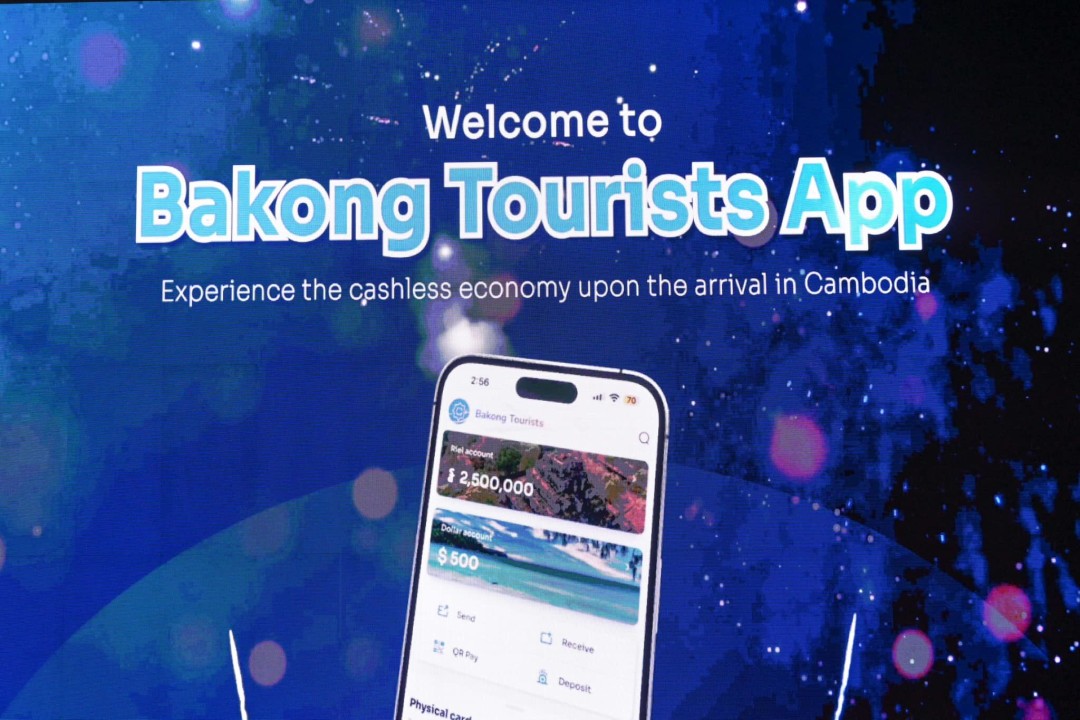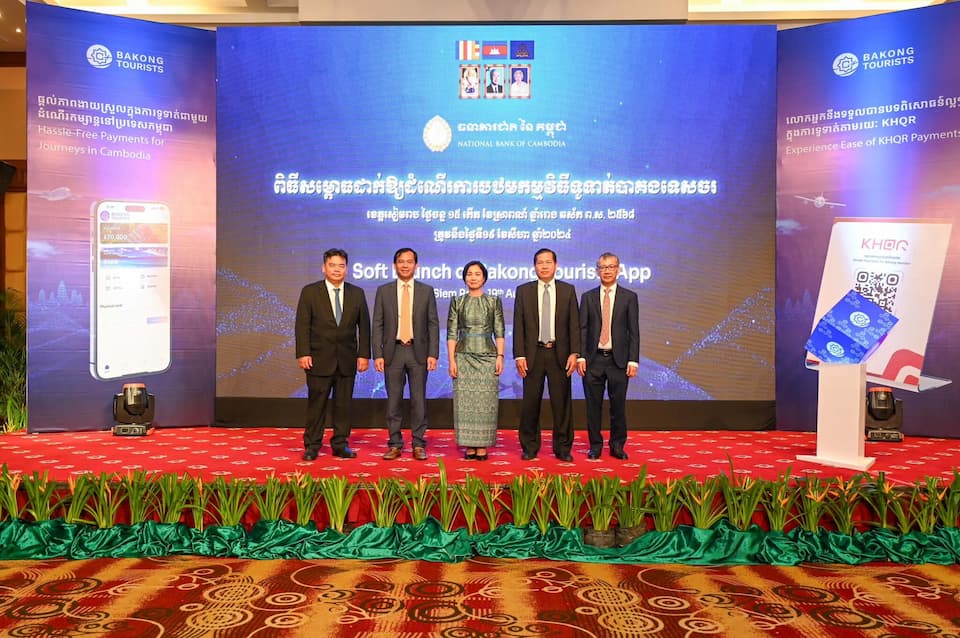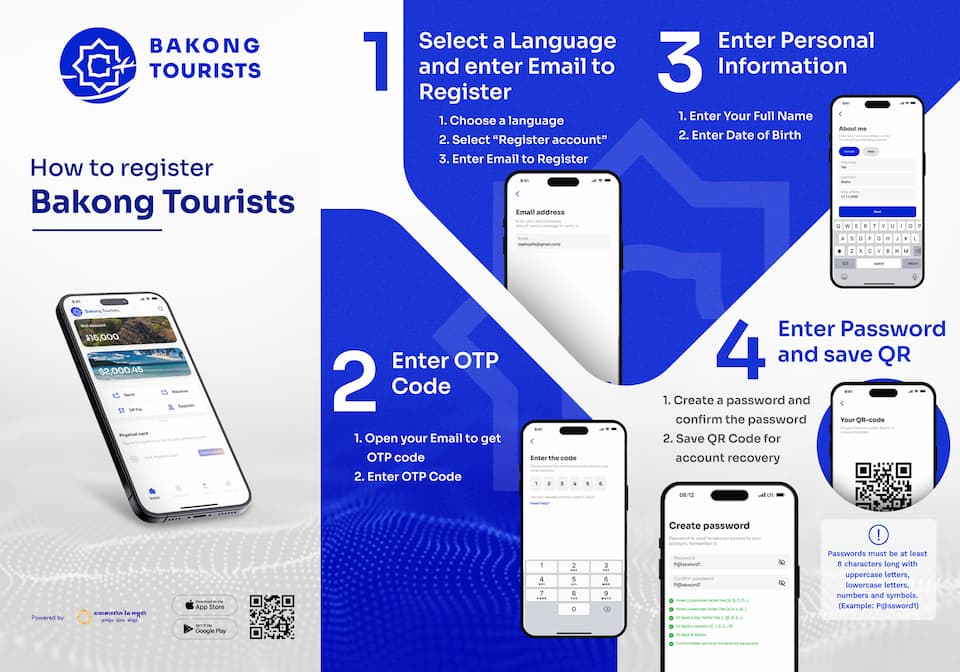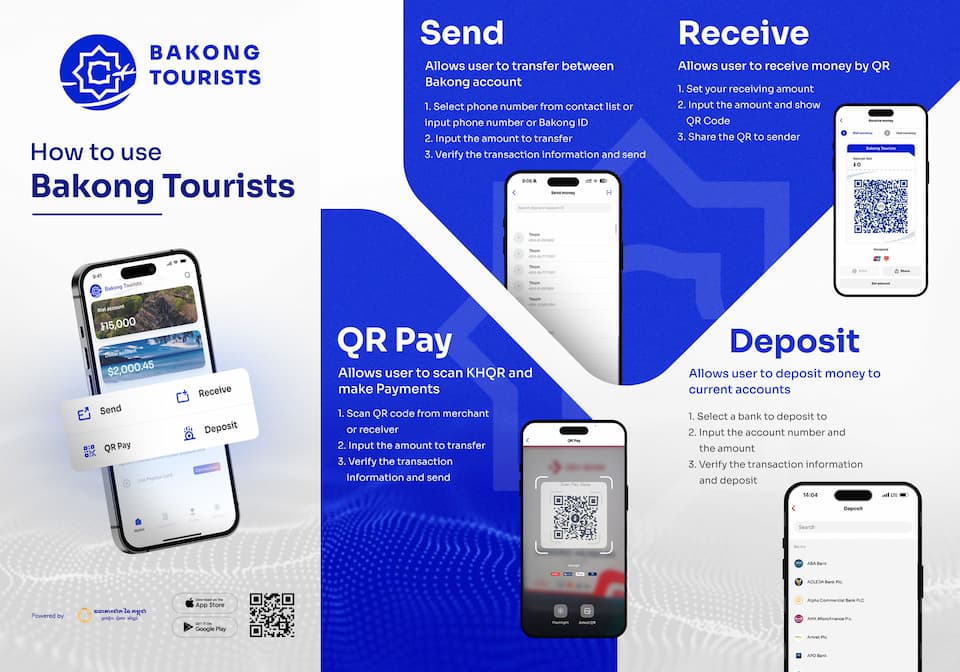How To Use The Bakong Tourists App - Cambodia

On August 19 2024, the National Bank of Cambodia (NBC) launched the Bakong Tourists App in Siem Reap province at a ceremony presided over by H.E. Dr. Serey Chea, Governor of the NBC. The app is intended to promote the tourism sector in Cambodia by providing digital payments for international tourists within the Kingdom - so how does the Bakong Tourists app work?
Updated January 2025
The introduction of the Bakong Tourists app was first announced in July 2024, and at the start of August, the app was available to download with the launch entering soft mode. The app allows tourists to make payments at over 3.3 million retail merchants across Cambodia via mobile payments (such as via QR).
Serey Chea said at the launch, “The Bakong Tourist establishment aims to boost the digital payment system in Cambodia and contribute to the tourist sector in the nation by making it easier for international tourists to Cambodia to pay digitally for products and services.”
The digital payment system for tourists via the Bakong Tourists App will for the first time be available to non-residents and international visitors can use Bakong which is already a popular means of digital payments and QR payments in Cambodia for those with local bank accounts.
Serey Chey added online via her LinkedIn account, “Launching of Bakong Tourist App, a mobile application that is simplified for tourists to download and experience QR code payments in Cambodia by topping up their wallet with local banks and participating hotels and travel agents (first stage) or uploading their physical credit cards (second stage)."
With more than 3.3 million KHQR acceptance points against 55,000 POS, it is definitely more convenient for tourists to make payments in Cambodia. The balance in the wallet can also be used to make payments in our partnering countries.”
The Bakong Tourists are being promoted at Cambodian airports and entry points and international visitors can download them upon their arrival. The NBC will work with the General Department of Immigration, tour associations, hotels and other stakeholders to promote the app to tourists visiting the Kingdom.

How To Register The Bakong Tourists App In Cambodia
The Bakong Tourists app is available now on the Android Google Play store and the Apple App Store.
The description of the app says, "The Bakong Tourists App provides a one-stop service app for digital wallets, mobile payments, online banking, and financial applications. Conveniently scan and pay KHQR anywhere and anytime. Enjoy your trip. Enjoy KHQR payments. Bakong Tourists lets you: send or receive money easily, fast, and securely."
It should be noted that due to the soft launch period, it's likely there might be some teething issues and some functionality may not be fully operational.
- Download the Bakong Tourists App.
- Set up a user profile (language options were English and Japanese when we did this).
- Information required were; email, gender, full name, and date Of birth (DOB).
- At the profile creation stage, a QR recovery image is also generated which is recommended to be saved.

Can You Top-Up Bakong Tourists App?
During the soft launch, according to NBC, tourists can spend up to USD $3,000 per day with verification (however, the app shows us a limit of USD $2,000 per day with verification and USD $500 without verification).
- Once registration is completed, the app allows for sending & receiving funds (also via QR payments. Physical credit cards can be linked to the app in the future (there are USD and Khmer Riel accounts).*
- The app also shows the daily transfers and a daily limit can be set - the standard limit is USD $500 but this can be increased if personal information is verified (KYC). A selfie and a photo of your passport will be required.
- It appears as if during the soft launch, funds still need to be added to the app via a Bakong partner such as at the airport or partner hotels and this won't incur a fee.
- Once topped up, users can pay using the KHQR payments on the Bakong Tourists App, withdraw the remaining funds, transfer between Bakong accounts, or deposit into local bank accounts.
- Users can also donate funds to hospitals, such as Kantha Bopha and Angkor Hospital, via the app.
At the launch, it was said that the app could be used in Bakong partner nations, including Thailand, Vietnam and Laos. - but we have not tested this. Malaysia is due to be added in August and South Korea in September 2024.
Linking Bakong Tourists App to Visa & Mastercard
At the time of launch, it was confirmed that the Bakong Tourists App will enable users to link their existing international payment cards for account top-ups and the app also allows for exchanging between USD and Riel.
- In November 2024, foreign travellers visiting Cambodia could now link their Mastercard to the country’s ‘Bakong Tourists App’ to top up their funds for payments.
- On 22 January 2025, the visa payment network company was also connected to the Bakong Tourists App.
Once connected, users can transfer money to bank accounts and make payments via KHQR code with about 4.5 million merchants in Cambodia.

What To Do If You Have Issues Using Bakong Tourists App
In case of payment issues using the Bakong Tourists App, NBC says there is a dedicated team available to help resolve them. Users can contact the team via WhatsApp or Telegram, with details indicated in the app.
Bakong Is A Popular Digital Payment System In Cambodia
The popularity and use of the Bakong (blockchain-backed) digital payment systems have grown substantially in Cambodia since launching. The main reasons are the ease of facilitating cross-bank payments without fees, and the app is user-friendly and secure.
For visitors wishing to access their funds through traditional methods which may incur fees, there are over 52,000 card-swiping machines in Cambodia and 5,600 ATMs available nationwide in Q3 2024.
According to NBC, in H1 2024, there were 75 million riel transactions made through the Bakong system with a value of 65 trillion riels, and 99 million US transactions valued at over USD $38 billion.